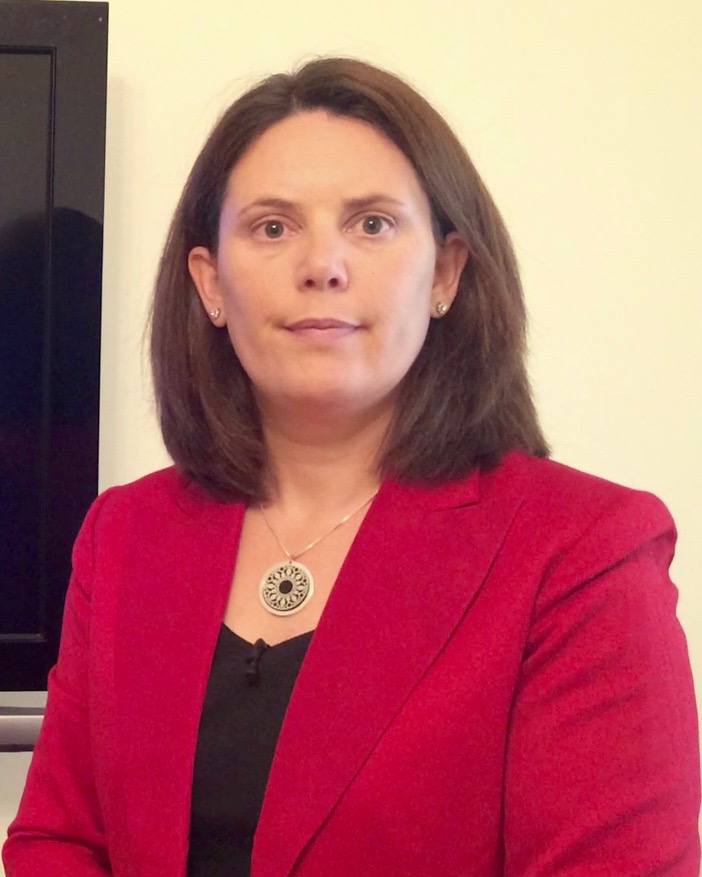-
Courses

Courses
Choosing a course is one of the most important decisions you'll ever make! View our courses and see what our students and lecturers have to say about the courses you are interested in at the links below.
-
University Life

University Life
Each year more than 4,000 choose University of Galway as their University of choice. Find out what life at University of Galway is all about here.
-
About University of Galway

About University of Galway
Since 1845, University of Galway has been sharing the highest quality teaching and research with Ireland and the world. Find out what makes our University so special – from our distinguished history to the latest news and campus developments.
-
Colleges & Schools

Colleges & Schools
University of Galway has earned international recognition as a research-led university with a commitment to top quality teaching across a range of key areas of expertise.
-
Research & Innovation

Research & Innovation
University of Galway’s vibrant research community take on some of the most pressing challenges of our times.
-
Business & Industry

Guiding Breakthrough Research at University of Galway
We explore and facilitate commercial opportunities for the research community at University of Galway, as well as facilitating industry partnership.
-
Alumni & Friends

Alumni & Friends
There are 128,000 University of Galway alumni worldwide. Stay connected to your alumni community! Join our social networks and update your details online.
-
Community Engagement

Community Engagement
At University of Galway, we believe that the best learning takes place when you apply what you learn in a real world context. That's why many of our courses include work placements or community projects.
Advanced Healthcare Practice and Research (MSc)
Course Overview
**Note: This Programme has been discontinued and will not be available for the academic year 2025-2026.**
The overall aim of the MSc Advanced Healthcare Practice and Research is two-pronged:
- The first aim is to develop participants’ capacity to take a leadership role in relation to teaching healthcare students. The programme will empower participants to become competent and self-directed clinical educators. Many healthcare professionals report feeling under-trained to take on the responsibilities of the clinical educator role. Lack of knowledge, skills and confidence in teaching and assessing students particularly weak and challenging students are commonly cited concerns. This MSc will provide opportunities for participants to advance their skills in teaching, assessment and research in the clinical context. Participants will become skilled role models in the implementation of high quality educational environments to enhance practice for educators, students and clients.
- The second aim of this MSc is to advance participants’ capacity in relation to research in their chosen clinical field of specialism. There is an increased emphasis on evidence-based practice within healthcare professions. The aims of this MSc are also to develop learners with the knowledge, skills, and attitudes to use and contribute to evidence-based practice and to enable them to take a leadership role in designing and implementing research to support best practice.
On completion of the MSc participants will be able to:
- Critically appraise, design and implement evidence based clinical teaching approaches and methods;
- Critically appraise assessment methodology and its impact on the learner and the learning environment;
- Design, implement and reflect on procedures which enhance the quality of student placements;
- Critically appraise, design and manage a piece of semi-independent research
NOTE: information on the University of Galway Taught Masters Scholarship Scheme is online here.
Applications and Selections
Applications are made online via the University of Galway Postgraduate Applications System.
While not compulsory it is recommended that applicants should;
- Have relevant experience in clinical teaching.
- For those applicants who do not have clinical teaching experience opportunities can be provided at University of Galway. Participants will not get paid for this work and are advised to contact the Course Director in advance to discuss.
The Discipline of SLT may be able to provide some opportunities for clinical experience for new graduates to enable them to maintain their clinical skills and access participants for their dissertation. Supervision and mentoring will be offered and participants will not get paid for this work.
Applicants should be eligible to
- Obtain Garda clearance in the event they wish to carry out a thesis with clients or engage in clinical work.
- Be eligible to register with CORU.
Who Teaches this Course
Educators and Tutors TBD (Discipline of General Practice; University of Galway).

Discipline of Speech and Language Therapy
Áras Moyola
University of Galway
View Profile
Requirements and Assessment
Key Facts
Entry Requirements
Applicants must hold a degree in a professional healthcare course (minimum Second Class Honours degree required). Applicants must be able to register with their appropriate professional or regulatory body.
Additional Requirements
Recognition of Prior Learning (RPL)
Duration
1 year full-time; 2 years-part-time
Next start date
September 2025
A Level Grades ()
Average intake
20
QQI/FET FETAC Entry Routes
Closing Date
NFQ level
Mode of study
ECTS weighting
Award
CAO
Course code
MSC-AHP
Course Outline
There will be five taught modules. These will include;
Educational Research
Learning Outcomes
On completion of this module, students will be able to:
- Explain the similarities and differences between educational and healthcare research;
- Describe educational research paradigms, strategies and methods;
- Prepare a robust research proposal;
- Implement a research design;
- Analyse quantitative and/or qualitative data using appropriate techniques;
- Report and present research findings in the form of a research paper;
- Enter, manage and analyse data using SPSSS and NVivo as appropriate;
- Show due regard to research ethics;
- Critically reflect on research practice.
Clinical Teaching in SLT
Learning Outcomes
On completion of this module, students will be able to:
- Critically appraise the stages of student learning and describe learning theories that underpin practice education;
- Critically appraise and implement best practice in student education;
- Interpret the legislation impacting student education;
- Critically appraise the existing and emerging evidence base in relation to challenges experienced on placement;
- Design, implement and reflect on procedures which enhance the quality of student placements.
Clinical Teaching Methodologies
Learning Outcomes
On completion of this module, students will be able to:
- Implement and evaluate effective clinical teaching using appropriate theory based techniques;
- Categorise explanation into different approaches and apply them to different educational challenges;
- Explain how to use different questioning styles to promote effective learning;
- Describe different types of feedback and explain why feedback is a vital part of the learning cycle;
- Plan, facilitate and evaluate active learning in small groups in a clinical setting;
- Plan, deliver and evaluate an effective lecture, and encourage active learning in a large group teaching setting;
- Describe what is meant by "teaching scripts" and explain why some strategies are more useful than others for teaching in particular contexts;
- Demonstrate proficiency in key clinical teaching skills such as bedside teaching, giving feedback and using questions appropriately.
Foundations of Assessment
Learning Outcomes
On completion of this module, students will be able to:
- Situate assessment within the context of the curriculum;
- Describe the diverse purposes of assessment;
- Explain key concepts in assessment with examples from practice and/or experience;
- Critically evaluate the way in which assessment is currently used;
- Use the concept of course alignment effectively in relation to practice;
- Explain how to enhance validity in the design of assessment;
- Explain how reliability can be addressed in design and implementation of assessment;
- Draw on best practice in the design of assessment in a clinical educational setting;
- Select appropriate assessment(s) for different domains and levels of learning outcomes;
- Apply levels of proficiency at each level of Miller's triangle;
- Explain the importance of making judgements in the process of assessment;
- Explain the relevance of norm and criterion referencing to the process of assessment;
- Devise appropriate criteria for the assessment of clinical knowledge and skills;
- Explain blueprinting and apply it to their own assessment practice to assure quality.
Using Evidence in Practice
Learning Outcomes
On successful completion of this module students should be able to:
- Describe the evidence based practice resources available which are relevant for practice in the clinic, classroom and community.
- Demonstrate proficiency in turning questions into effective search strategies.
- Appraise quantitative and qualitative research literature
- Analyse and synthesise information from multiple sources to draw valid inferences about the state of knowledge in a particular field.
Module details for the full-time course
Module details for the part-time course
Why Choose This Course?
Career Opportunities
On completion of this MSc, you will be well positioned to pursue senior, specialist and managerial posts within the HSE and voluntary agencies. You may also choose to pursue opportunities in academic teaching. The interdisciplinary learning environment will equip you with new and innovative ways of working in our challenging healthcare system.
Who’s Suited to This Course
Learning Outcomes
Transferable Skills Employers Value
Work Placement
Study Abroad
Related Student Organisations
Course Fees
Fees: EU
Fees: Tuition
Fees: Student levy
Fees: Non EU
For 25/26 entrants, where the course duration is greater than 1 year, there is an inflationary increase approved of 3.4% per annum for continuing years fees.
Postgraduate students in receipt of a SUSI grant – please note an F4 grant is where SUSI will pay €4,000 towards your tuition (2025/26). You will be liable for the remainder of the total fee. A P1 grant is where SUSI will pay tuition up to a maximum of €6,270. SUSI will not cover the student levy of €140.
Note to non-EU students: learn about the 24-month Stayback Visa here.
Find out More
Laura Loftus
T: +353 91 495 470
E: laura.loftus@universityofgalway.ie
Dr Ruth Mc Menamin
T: +353 91 495 470
E: ruth.mcmenamin@universityofgalway.ie


















